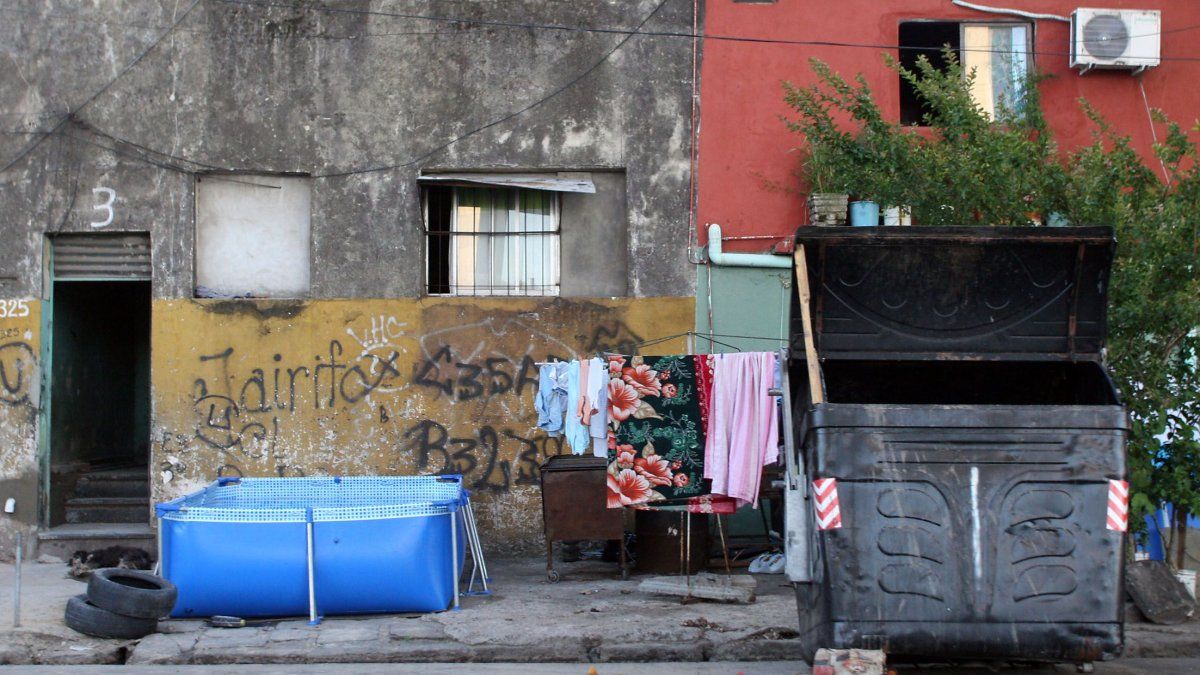Israel is on high alert. The military leadership is warning the country’s enemies. Iran could supposedly still be prevented from retaliating. But what is Hezbollah doing?
In view of the retaliatory strikes against Israel that Iran and its allies have been threatening for days, the situation in the Middle East is at breaking point. Israel is threatening its enemies with devastating consequences. “We will send a very clear message to our enemies, to those who attack us, to those who talk in every speech about how they will destroy the State of Israel,” warned Israeli Chief of Staff Herzi Halevi during a visit to an air force base. According to media reports, the focus is primarily on the Hezbollah militia in Lebanon, which is allied with Iran. According to official information, hospitals there are already preparing for an emergency.
“As things stand, (Hezbollah leader Hassan) Nasrallah could make Lebanon pay a very high price. You cannot even imagine what could happen,” said Israel’s Defense Minister Joav Galant during a visit to troops, according to the “Times of Israel.” It is increasingly looking like Hezbollah could attack Israel in the coming days, regardless of Iran’s intentions, the US television channel CNN quoted two sources familiar with intelligence information as saying overnight. It is not clear whether Iran and Hezbollah will coordinate a possible attack.
Israel draws a red line
The Israeli government has informed its ally the United States that the Israeli military would react “disproportionately” if Hezbollah attacks Israeli civilians in revenge for the recent killing of its top military commander, Israeli journalist Barak Ravid reported on the US news portal “Axios”, citing two unnamed Israeli officials. This is an attempt to define a line of action that would force Israel to escalate the conflict with Hezbollah, which has been going on for months, and risk war.
For days, the US, together with its allies in the West and the Middle East, have been urging Iran and Israel to reduce tensions and prevent a major war in the region. French President Emmanuel Macron called on Iran’s new President Massoud Peseschkian in a telephone call to do everything possible to avoid further military escalation, which would also be of no interest to Iran and would cause lasting damage to regional stability, the Élysée Palace announced.
Report: Iran may reconsider its stance
According to a commentator in the Washington Post, the intensive diplomatic efforts may now be having an effect. The risk of an Iranian attack is still high. But White House officials told the newspaper that the efforts are gradually paying off and there is a possibility that Iran will reconsider its position. The military threat of the deployment of additional US warships and fighter planes to the region has also contributed to this.
Iran knows full well that the US will defend its interests and partners ruthlessly, a senior US government official was quoted as saying by the newspaper. It was also made clear to Iran that a major escalation would have serious consequences for the stability of President Peseschkian’s new government.
Egypt has meanwhile banned its airlines from flying over the Iranian capital Tehran early Thursday morning. “All Egyptian airlines should avoid flights over Tehran,” said a safety notice from the civil aviation authority in Cairo. Plans for flights over this area were rejected. The order was valid for three hours from 3 a.m. (CEST). The aviation authority referred to a warning from the Iranian authorities that military exercises were planned in the country at around the same time.
Jordan had previously advised airlines to prepare aircraft in the airspace of the kingdom, which borders Israel, for a possible attack by Iran. All incoming aircraft should be filled with fuel for an additional 45 minutes of flight, it said.
The information office at the international airport in Tehran described the situation in Iranian airspace as normal. Only a few airlines, such as Lufthansa and Austrian Airlines, have temporarily suspended their flight operations to Tehran due to a possible military conflict with Israel. Turkish Airlines has at least stopped its night flights.
Lebanon’s health sector plans for emergency
Due to the threat of escalation, hospitals in Lebanon are preparing for an emergency. According to the Lebanese Ministry of Health, hospitals in the economically troubled country have supplies for around four months. However, if the country’s ports or airports become targets and go out of service in the event of an escalation, the supplies of the largest public hospital, the Rafik Hariri Clinic, would last for a maximum of ten days, Director Jihad Saadeh told dpa. If it is flooded with patients, supplies could run out after just a few days.
After the killing of Hamas foreign chief Ismail Haniya in Tehran and the killing of the military commander of the Hezbollah militia in an Israeli attack in Beirut, the danger of a major war in the Middle East is palpable. According to 57 Islamic states, the Jewish state is “fully responsible” for the killing of Haniya. The attack is a “blatant violation of international law and the UN Charter,” says the final statement of the Organization of Islamic Cooperation (OIC) after an emergency meeting in Saudi Arabia.
Islamic countries: Fight for Palestinians now intensified
The fight for justice for the Palestinians will now be intensified, said Gambian Foreign Minister Mamadou Tangara, whose country currently chairs the organization. Israel has not yet commented on Haniya’s death. According to US media, he died in a bomb attack.
Meanwhile, Hamas is said to have appointed a new negotiator for the talks on a ceasefire in the contested Gaza Strip. Khalil al-Haya will represent Hamas in the indirect negotiations and will be subject to the instructions of its new leader Jihia al-Sinwar, reported the Saudi Arabian TV station Al Hadath, citing three Palestinian sources, including a Hamas official. Haniya was considered Hamas’s chief diplomat until his death.
Unlike his predecessor Haniya, who led a life of luxury in Qatar as chairman of the Hamas political bureau, Sinwar has been in hiding since the massacre he commanded in the Israeli border region on October 7. He is believed to be somewhere in the extensive network of tunnels under the blockaded coastal strip. It is still uncertain how the concentration of power within Hamas in Sinwar’s hands will affect the efforts to achieve a ceasefire. So far he has been implacable and has strictly rejected compromises with Israel.
Source: Stern
I have been working in the news industry for over 6 years, first as a reporter and now as an editor. I have covered politics extensively, and my work has appeared in major newspapers and online news outlets around the world. In addition to my writing, I also contribute regularly to 24 Hours World.




